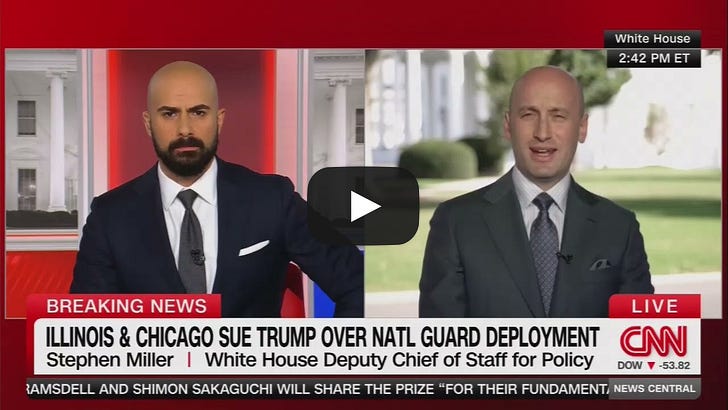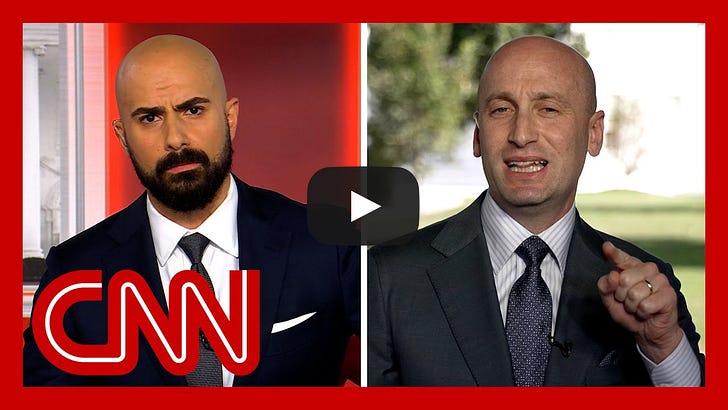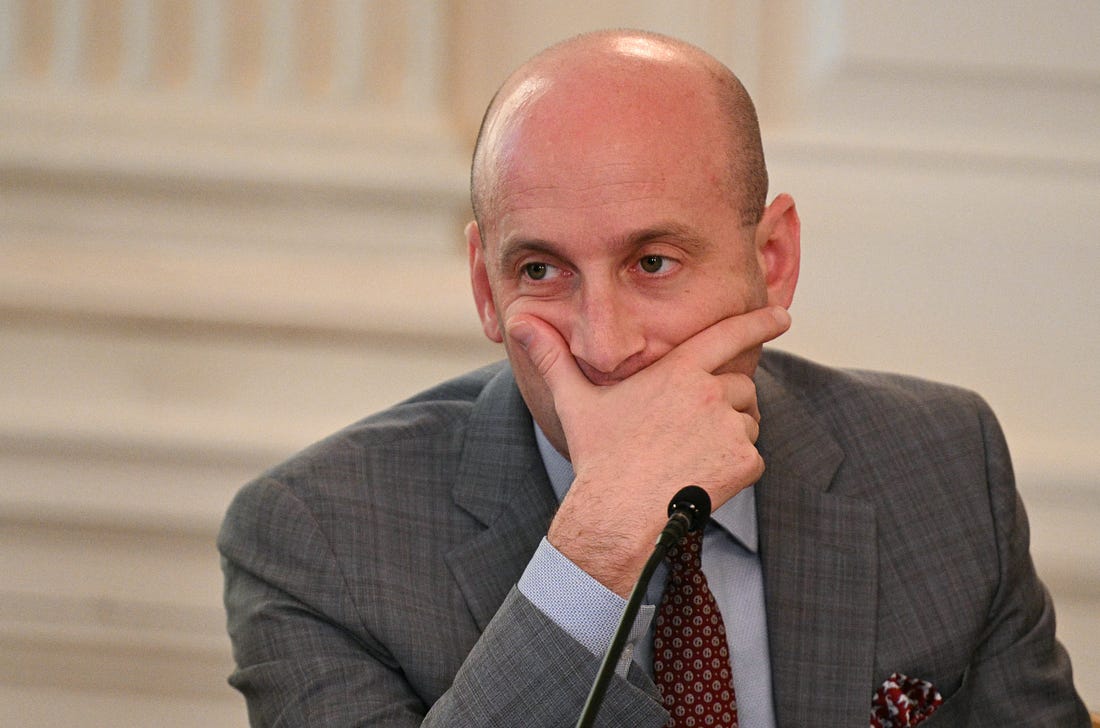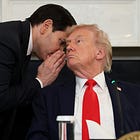|
Public Notice is supported by paid subscribers. Become one ⬇️
Last week, White House Deputy Chief of Staff Stephen Miller said the quiet part out loud on national TV, revealing in one moment just how much power Donald Trump is trying to seize for himself.
Miller was doing a CNN hit on October 6, after a Trump-appointed judge, Karin Immergut, blocked the administration from deploying the Oregon National Guard to Portland. Miller was humming along nicely here with his usual combination of petulance and arrogance when he was asked a simple question.
“You’ve called the district judge’s ruling blocking the deployment of the National Guard in Oregon ‘legal insurrection.’ Does the administration still plan to abide by that ruling?”
Miller was hyped to show off his big brain with a slick answer, but things went awry nearly immediately.
After blathering a bit about how the administration already filed an appeal to the Ninth Circuit and how it won at the Ninth Circuit over the deployment of troops in California, Miller says this: “Under Title 10 of the US Code, the president has plenary authority… ”
And then he stopped talking. And stopped moving, apparently in the hope CNN would just think his video froze, rather than that he was sitting there trying to unring the bell he just clanged live on television.
Watch:

CNN ultimately did Miller and the administration a solid by erasing evidence of the slip-up, with the official video on the network’s YouTube page now showing a glitch at the 10-second mark where Miller’s remark got disappeared.

But the internet is, of course, forever, so the plenary authority slip-up can still be viewed elsewhere (including in the HuffPost video embedded above).
So what’s the big deal about those two little words, and why does it give the game away? Well, because it’s an insanely sweeping, ahistorical, unconstitutional expansion of the powers of the president. And while the last nine months have been nothing but a myriad of sweeping, ahistorical, unconstitutional expansions of Trump’s power, even Miller seemed to recognize he’d gone too far.
“Plenary authority,” explained
“Plenary authority,” sometimes called “plenary power,” refers to areas of law where some body or official exercises complete control, with no limitations. It’s a thorny concept that can refer both to the ability to make laws and the ability to review government actions.
An example of the former is Congress’s power over immigration. Because Congress has complete authority in that arena, states cannot pass their own immigration laws. This played out recently when a lower court struck down — and the Supreme Court declined to overturn — a Florida law that made it a crime, with mandatory imprisonment, for “illegal entry” into the state. Controlling immigration, the lower court noted, has been an exclusively federal power for 150 years.
An example of the latter can also be found in the immigration context. There, the ability of the federal courts to review legislative and executive branch actions is quite limited. Practically speaking, this means the judicial branch typically has to defer to the other branches in reviewing any immigration matters.
So, if Miller had been answering a question about immigration law, it might not have been such a stretch to invoke plenary authority. But that wasn’t the question. The question was about Trump’s authority to federalize the National Guard under Title 10.

